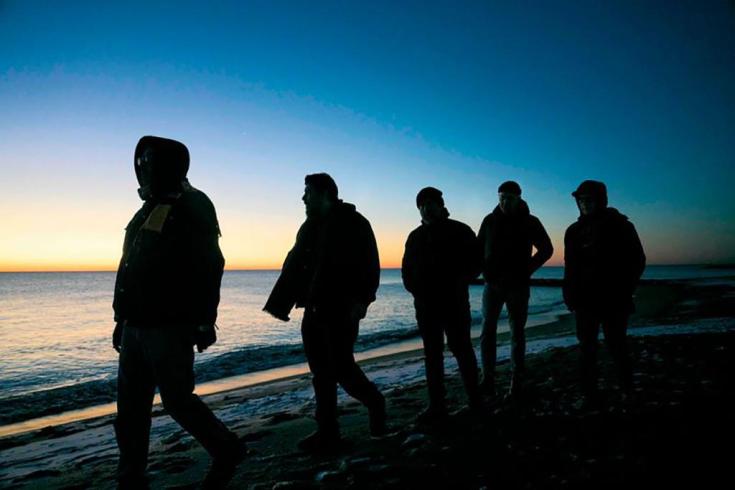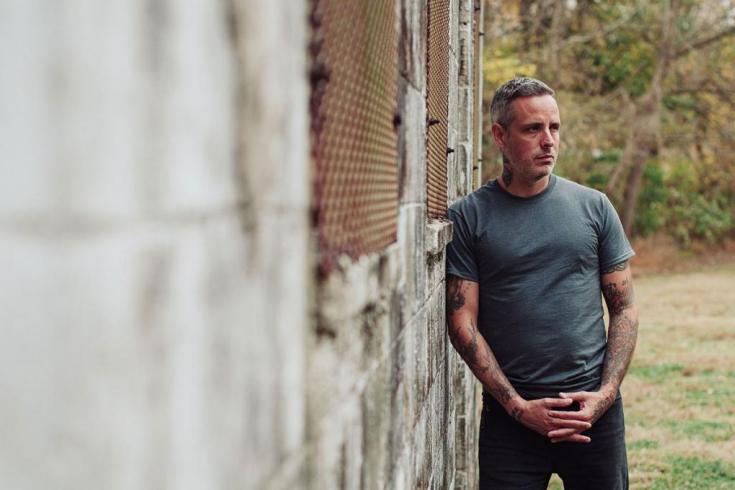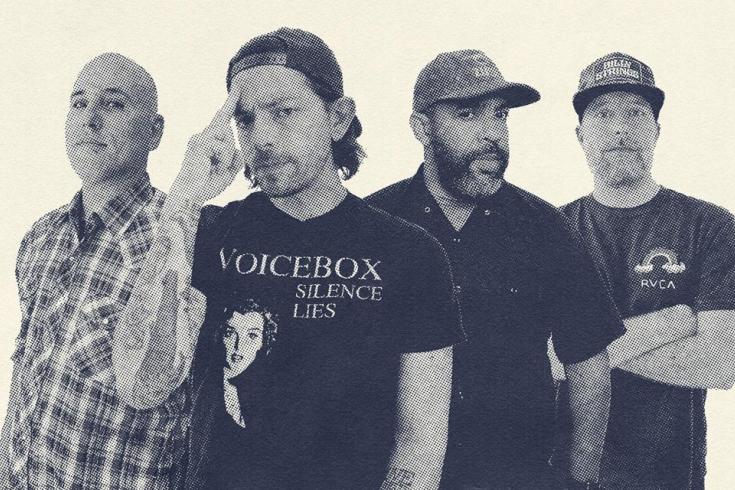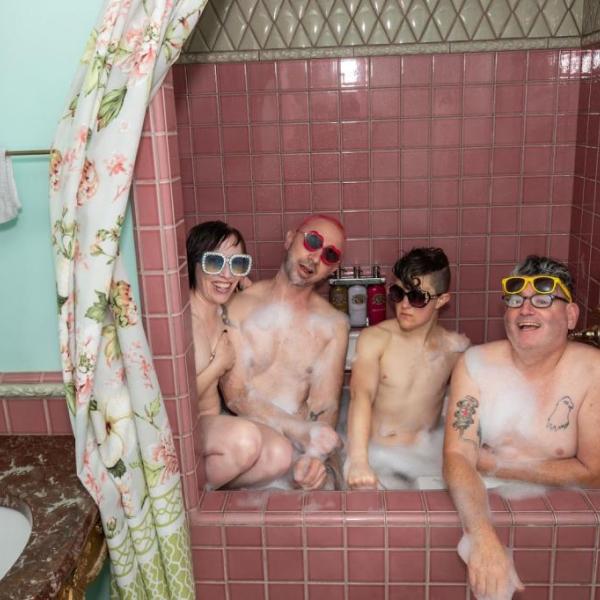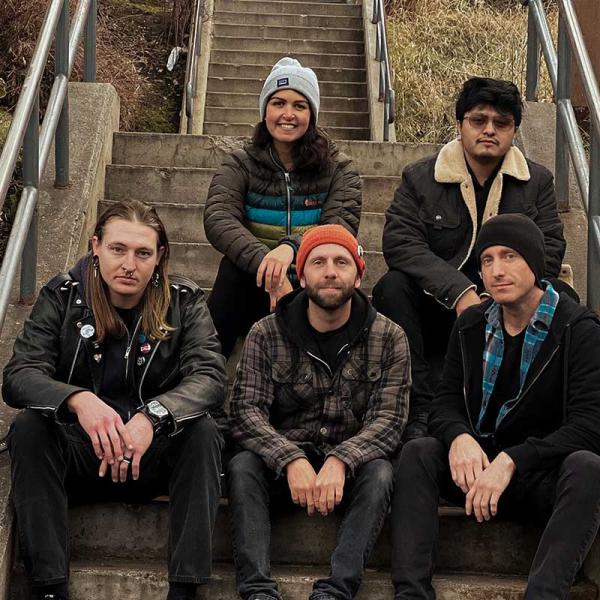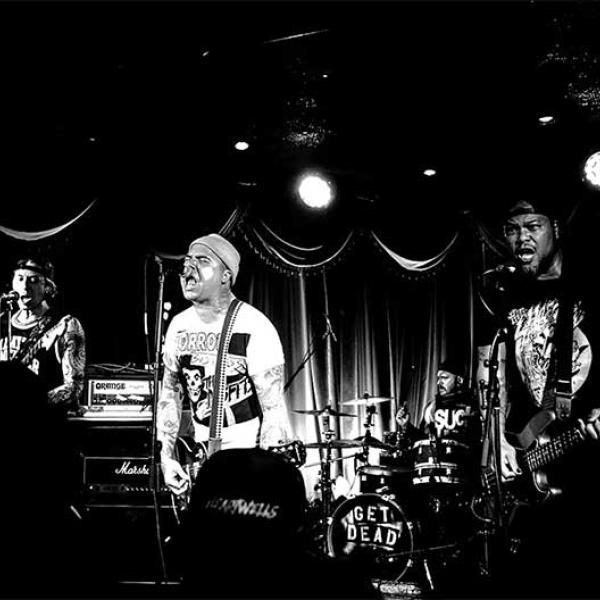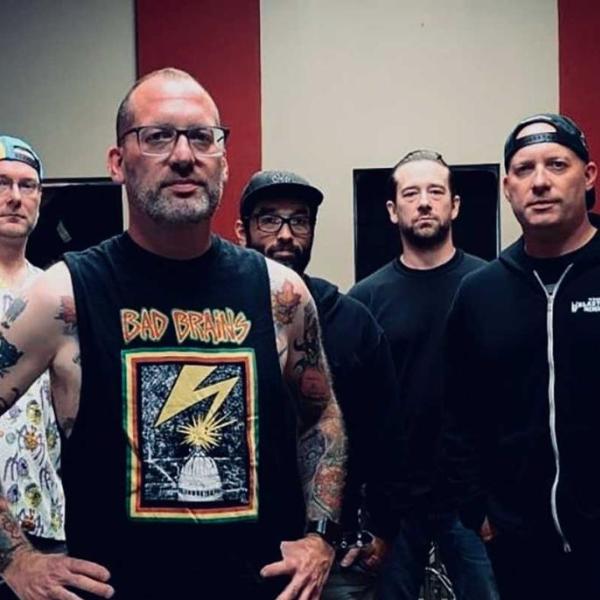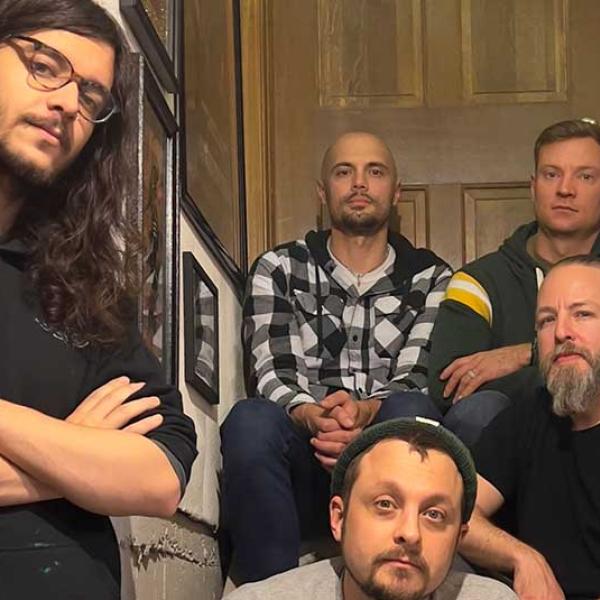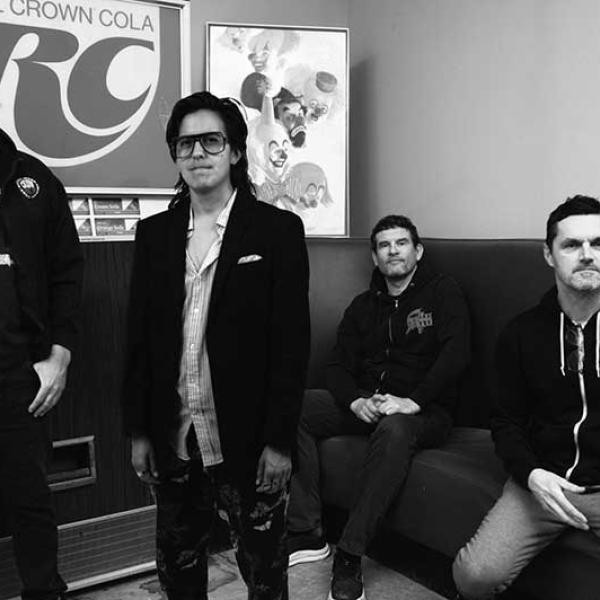Features
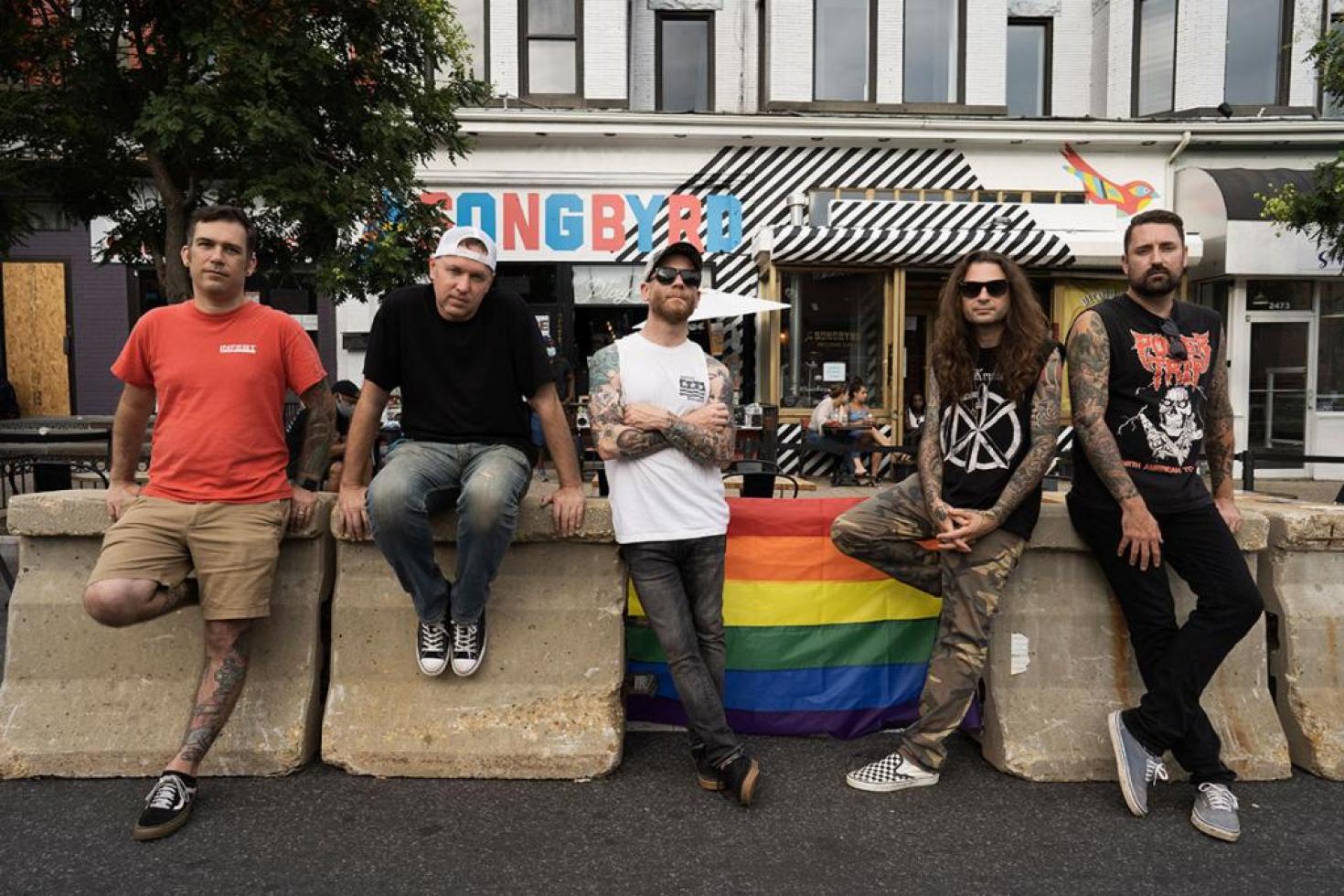
Does the name Brian McTernan ring a bell? It should. Not only did the man front the hardcore force that was Battery, he is also responsible for making some of your favorite records sound as awesome as they do. From Converge, Darkest Hour and Thrice to Bane, Strike Anywhere, Hot Water Music, and countless others, McTernan has worked with all of them.
Be Well is not simply a return to his hardcore roots. The band’s upcoming album, ‘The Weight and the Cost’, is also a brutally honest account of McTernan’s personal struggles with depression and anxiety. With the help of members of Darkest Hour, Bane and Fairweather, he lays it all out there in songs that are equally heartbreaking and raw as they are uplifting and anthemic.
Read on to find out what Brian had to tell us about the band and the album, which will be out Aug 21 via Equal Vision Records (US) & End Hits Records (UK, Europe).
PRT: The first pressing of the album has almost sold out in the States. In Europe, the second pressing is almost gone as well after the first one sold out in less than 24 hours even. A humbling experience?
Brian: Definitely! Although honestly, what has been more exciting than how the record is selling is the extent to which people have connected with the songs. On a personal level, having written a record that documents a lifetime of feeling isolated, only to realize that so many people actually share that feeling, has made me feel a lot less isolated.
PRT: A lot of bands choose their name because it sounds cool or because they think it will stand out. But Be Well isn’t just the band name, I’m guessing it also serves as the band’s mission statement?
Brian: That is a rad way to look at it. When I started writing the record, the music and lyrics felt like they contained a balance of hope and pain. So the name felt like it straddled that line well. Also, I think you can experience the phrase in different ways. Saying "be well" has always sounded to me like a farewell, a closing salutation to someone or some part of yourself you don’t ever want to be again, but the other guys in the band heard it as hopeful and positive.
PRT: When you first started writing these songs, how long did it take for you to realize these weren’t going to be released under the Battery moniker?
Brian: I knew immediately that it didn’t feel like Battery. Doing a band has always been equal parts creation and performance. Battery shows are unbelievable, but what I needed to get out creatively felt like it didn’t work in that box. It was a scary decision, but it’s fun to be doing something new, and I love getting to create with different people.
PRT: Once you decided to release this as something else, did it feel right right away? Like everything fell in place?
Brian: No…It took over a year to find people to play with. It was stunning how many people I sent demos to who never even listened to them. It was disheartening at times. Fortunately, I had a lot of people around me who I love and respect and who pushed me to not give up. Once we found band members, things clicked and fell into place quickly.
PRT: Do you look at Be Well as something completely new that stands apart from what you have done in the past or a logical next step?
Brian: I think it’s both. It’s definitely unlike anything any of us have ever done. On the other hand, I think that if you look through the lense of creativity, I think that newness actually makes it a much more logical next step than just doing retreading old ground.
PRT: How did the rest of the band get involved with Be Well?
Brian: Mike Schleibaum plays in Battery, and he has been one of my closest friends for almost 25 years, going back to high school. I had initially been sending him the new stuff I was writing, and he is the one that really felt like the songs were special and should turn into something. We jammed with a bunch of people, but things never felt right. Then Aaron Dalbec, who I had previously worked with in Bane and Converge, moved to Maryland and we sent him early demos and he loved them. Mike ended up playing the demos for Peter Tsouras, who shared them with Shane Johnson, who I was familiar with from Fairweather. We decided to all get together and jam, and it immediately felt like we had been playing together our whole lives.
PRT: All of you have spent time in other bands like Battery, Bane, Darkest Hour and Fairweather. Solid bands in their own right, but different from Be Well. Do you see that as an advantage or a slight disadvantage? Because people will check out Be Well based on what you have done in the past but they will probably come into it with certain expectations.
Brian: It’s a bit of both. It makes it easier to have people check it out initially, but you end up have a lot of pre-conceived notions to contend with as well. Our goal with this was never to get huge or be a supergroup, but rather to have a creative outlet and continue to contribute to a community that we have all given our lives to. So I guess the best of both worlds would be that more people stumble upon us due to our past connections, and then they like what they hear.
PRT: You went from Battery to music producing to a new career as a project manager for a construction company. How hard was it to leave the whole music thing behind? Or did it at that point feel liberating to get to start something completely different?
Brian: It was fun at first, but the hole in my life that not making music left was vast and deep. It led to a few of the hardest years of my life and a record that documents them.
PRT: It wasn’t until then that all of this stuff that you had kept bottled up inside started to come out. Which you then had to deal with. I can imagine it can’t have been easy the last couple of years, but I’m guessing you are in a better place now. Looking back, do you think you could have kept on charging forward, buried in your work without every having to deal with how you felt?
Brian: In the years leading up to when I took that break from music, I had been making record after record back to back, and I really lost myself. I was so tired that I just couldn’t do it anymore. The problem was that by then I felt so stuck and underwater that the only way I could finally follow through with making a change was to make a totally drastic change. I don’t want to say that I regret it, because it led me here and I am in the best place I can remember being, but it was hard. That's the problem with leaving things until they've reached a breaking point- you often end up overcorrecting at first.
PRT: You released the song ‘My Last Breath’ with Battery in 2017 and it deals with you being in a mental hospital and being afraid that you would pass this on to your daughter. How scary was it back then and now to talk about these things with such openness?
Brian: I don’t fear that I will pass mental illness on to my daughter... she is amazing, creative, and kind, and I wouldn’t want her to be any different. I have worried that my inability to deal with my own emotions has sometimes affected my ability to be the father that I want to be. My biggest fear is that she will feel ashamed of things that are integral to her being and will hide them from the world, or feel scared of her feelings and avoid them. I know that I haven't always set the best example in the past in this regard, so I'm working on changing that.
PRT: Having faced your depression and feelings of anxiety, how would you say that has changed you as a person, as a father and as a musician?
Brian: It’s something I continue to face, but I feel much more connected to the world right now and that has made things feel so much more hopeful in all regards.
PRT: And what has been the best reaction so far to laying it all out there?
Brian: I think I was most afraid of what the bands I had worked with in the studio would think. It’s not something I ever talked about and I wasn’t sure what their reaction would be. I have received countless messages from people telling me how much they love me and how proud they are. It has meant a great deal to me.
PRT: With this pandemic, it is not the best time to release an album right now. What is it like to work hard on a new album, build up to the release date and then... well, not be able to get out there and play shows? I imagine that must feel kind of anti-climactic?
Brian: It sucks!!! Fortunately, we had an amazing string of shows right before everything got so fucked up. Our record release show in DC was sold out and was a very intimate and special show. I can’t wait to be able to play again, but I truly feel awful for all of the bands and their crews that rely on performing as their sole income. And even though it's disappointing not to be able to tour, we are obviously incredibly lucky to be healthy and have safe places to live and still make music even if we're doing it from home right now.


